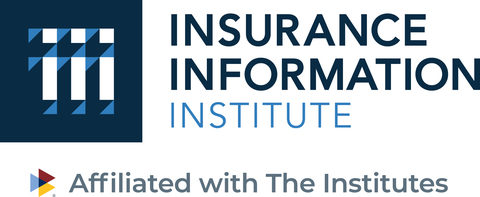Triple-I Media Advisory: California Property Insurers Helping Customers Recover from Devastating L.A. Wildfires
Triple-I Media Advisory: California Property Insurers Helping Customers Recover from Devastating L.A. Wildfires
SAN DIEGO--(BUSINESS WIRE)--California property insurers are acting as financial first responders to help their impacted customers recover from the wildfires devastating the metro Los Angeles area, according to the Insurance Information Institute (Triple-I).
#California @insurers are providing immediate relief to #wildfire victims through additional living expenses (ALE) coverage for displaced policyholders. @iiiorg
Share
This includes providing immediate relief through additional living expenses (ALE) coverage for displaced policyholders. Losses to property and vehicles will be covered up to the limits contained within an insurance policy.
Please note that California regulations require property insurers to immediately pay policyholders a minimum of one-third of the estimated value of their personal belongings and a minimum of four months’ worth of rent for the local area in which they live.
Triple-I offers the following insights on what’s typically covered under the policies most Californians have:
Homeowners, Condo and Renters Policies Cover Fire and Smoke-Caused Damage
Damage caused by fire and smoke is covered under standard homeowners and renters insurance policies.
A standard homeowners insurance policy covers wildfire-caused property damage to a home’s structure and its outbuildings (e.g., garage) as well as the personal belongings housed on the premises.
A standard renters insurance policy covers the renter’s personal belongings.
Standard homeowners, condo and renters insurance policies also provide additional living expenses (ALE), sometimes referred to as Loss of Use, to policyholders who either relocated because of a mandatory evacuation order or had their residence rendered uninhabitable due to wildfire-caused property damage.
Water damage caused by firefighters extinguishing a fire is covered under homeowners, condo and renters insurance policies.
Auto Policies Cover Fire and Wind-Caused Damage If Driver Opted for Comprehensive
The optional comprehensive portion of a standard auto insurance policy covers vehicles against damage caused by fire, falling objects, and other hazards. Approximately 75% of U.S. drivers opt to purchase comprehensive coverage.
Claim-Filing Tips
Triple-I recommends following these simple steps to filing a claim:
- Contact your insurance carrier or agent as soon as possible to begin the claim-filing process. Many insurers have mobile apps where you can file a claim.
- Ask your insurance professional about claim-filing requirements and deadlines.
- Take photos of damaged items (if it is safe to do so) and don’t discard damaged items until your assigned insurance adjuster has completed their assessment.
- Keep all receipts for out-of-pocket expenses, such as temporary lodging.
Triple-I Media Contact Information – California
Reporters covering the wildfires can contact Triple-I for interviews and analysis.
Triple-I’s California-based subject matter experts can discuss auto, business, business income (interruption), homeowners and renters coverage issues while also providing claims-filing tips.
- Janet Ruiz, Director, Strategic Communications, 707-490-9365, janetr@iii.org
- Pete Moraga, Spanish Language Media Spokesman, 310-921-0237, mpete1593@gmail.com
- General media inquiries: media@iii.org
RELATED LINKS
Articles: Wildfires: Insurance and Recovery Resources, Facts About Wildfires
Facts & Statistics: Wildfires
Contacts
West Coast Press Office: Janet Ruiz, 707-490-9365, janetr@iii.org
